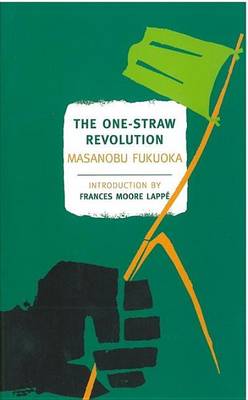Some have said that the Fukuokan philosophy is the tap root of what is now more broadly called Permaculture, only Masanobu Fukuoka was a Japanese farmer, working with rice and winter grain in a southern Japanese climate. Both are no-till methods that shun the use of chemicals. However, Fukuoka should be set apart from farming in general and Permaculture in particular, in that The One-Straw Revolution is essentially a profound work of literary philosophy. Indeed, in many cases it reads like a naturalist's bible. Although the book is dressed in the language and anecdotes of a farmer, the message looms much larger. We read of a man who came to terms with the problem of death, and then decided to form a profoundly new (or is it old?) relationship with nature. In essence, the nugget of his wisdom is that, instead of struggling to control and command nature, we must learn to work with and learn from nature. Allow me to share one quote:"To build a fortress is wrong from the start. Even though he gives the excuse that it is for the city's defense, the castle is the outcome of the ruling lord's personality, and exerts a coercive force on the surrounding area. Saying he is afraid of attack and that fortification is for the town's protection, the bully stocks up weapons and puts the key in the door." Now I ask you, does the following paragraph sound like the words of a farmer or a philosopher? From the face of it, one might think Fukuoka is here criticizing the nuclear arms race, but he is actually talking about the warlike mindset of farmers who see leaf-munching pests as evil enemies that must be fortified against, sought out and destroyed. Whether we are talking about bull weevils or communities, though, his advice is sound. We must change our frame of reference and establish a different relationship with the world. Concise and yet elegant, Fukuoka's prose is pregnant with meaning. Altogether, this work provides poetic an intelligent critique of industrial agricultural practices and the linear notions of nature and progress that underlay those practices. In fact, Fukuoka goes as far as to declare that the scientific method itself limits our experience and knowledge of nature. An invaluable, timeless work that will move you, even if you have never picked up a hoe.
- ISBN10 1299571948
- ISBN13 9781299571945
- Publish Date 1 January 2010 (first published 19 July 1985)
- Publish Status Active
- Out of Print 14 April 2015
- Publish Country US
- Imprint New York Review of Books
- Format eBook
- Language English
